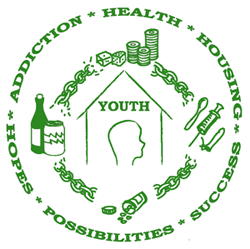Mental Youth Matters in London: Mental Health, Addiction and Homelessness

Outcomes: Of the 187 youth in this study, 75 (40%) chose Housing First, 57 (31%) chose to receive Treatment First, 38 (20%) chose to receive both, and 17 (9%) made no selection or another selection. During the study period, 134 youths were able to be housed at one point in time. The findings have also revealed that obtaining housing is an urgent concern for both male and female youths. Housing instability also caused individuals to be more susceptible to environmental and psycho-social stressors. Furthermore, youths reported that housing instability worsened mental health symptoms and led to increased substance abuse. Many youth struggled to balance addressing their housing concerns with street survival. In addition to these factors, gender should also be considered when developing health and housing services for homeless and street-involved youth.
Implications: The implications for this study are considerable. First of all, this study revealed the complexity of the experience of homelessness and steet-involvement for youths. Many of the youths in this study experienced social displacement, marginalization, and social suffering as a result of the complex intersection of social, cultural, and economic contexts.
With respect to policy and program development, this study showed that these youths have many psychological, social, existential, and financial difficulties. Issues surrounding teen pregnancy were apparent, so housing services need to accomodate families, not just individuals. For those struggling with substance abuse and addiction, treatment options need to be available immediately. Housing that is outside of the cores of cities and that support life skill development is also necessary. Since the needs of homeless and street involved youth are constantly changing, a "one-size-fits-all" approach to housing is not adequate. Overall, the findings of this study can be used in similar situations across Canada.